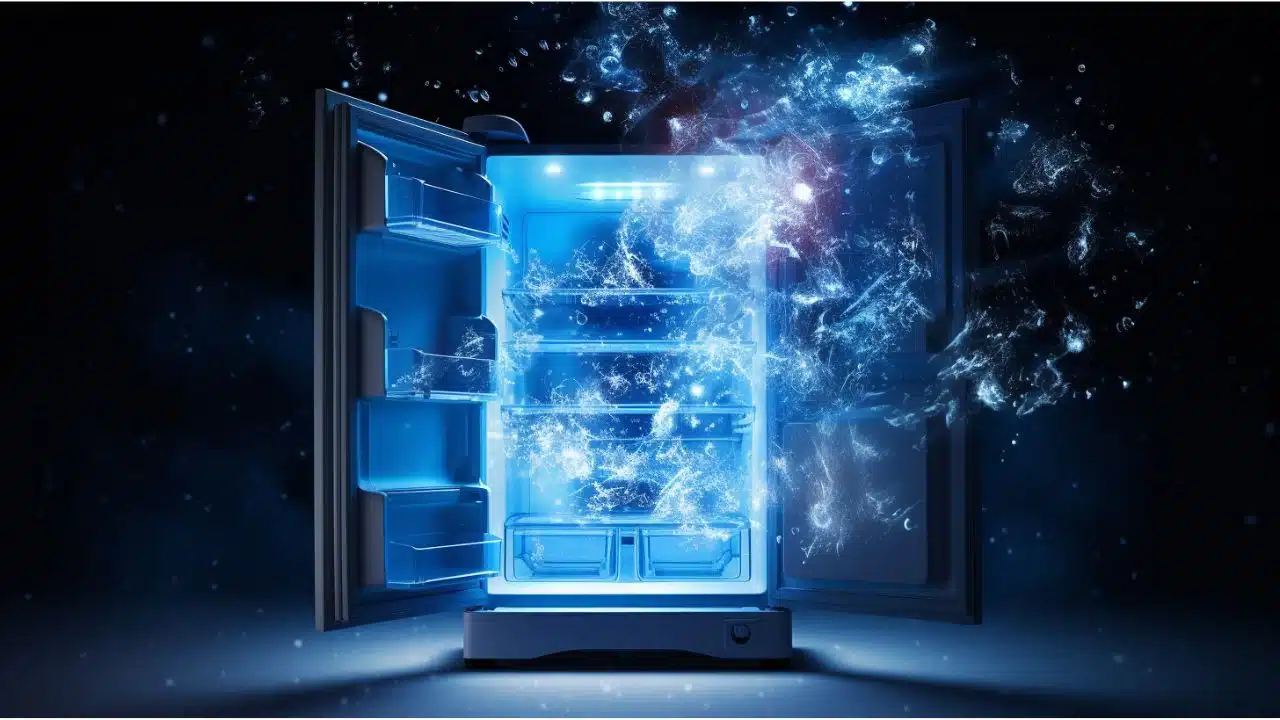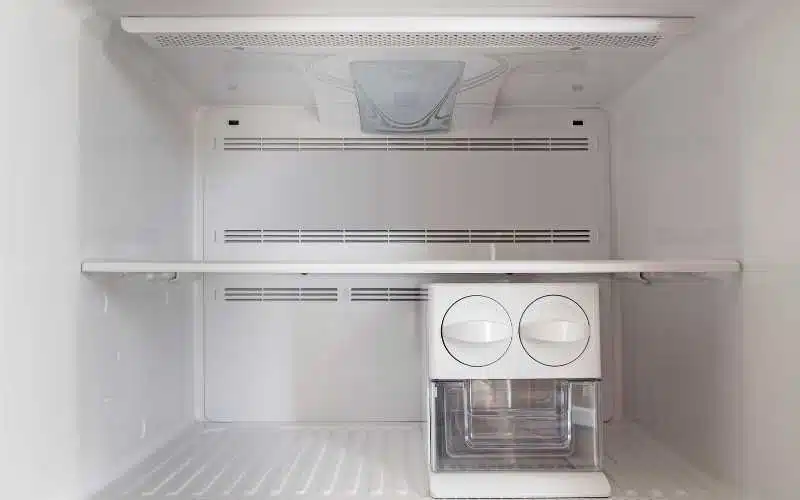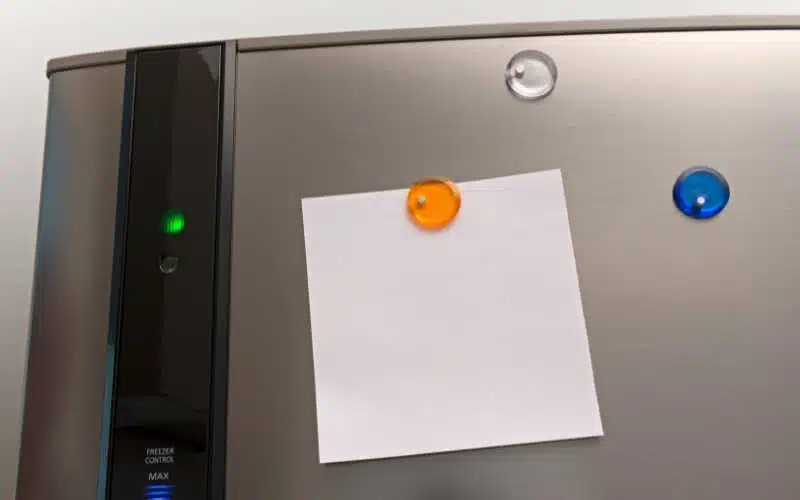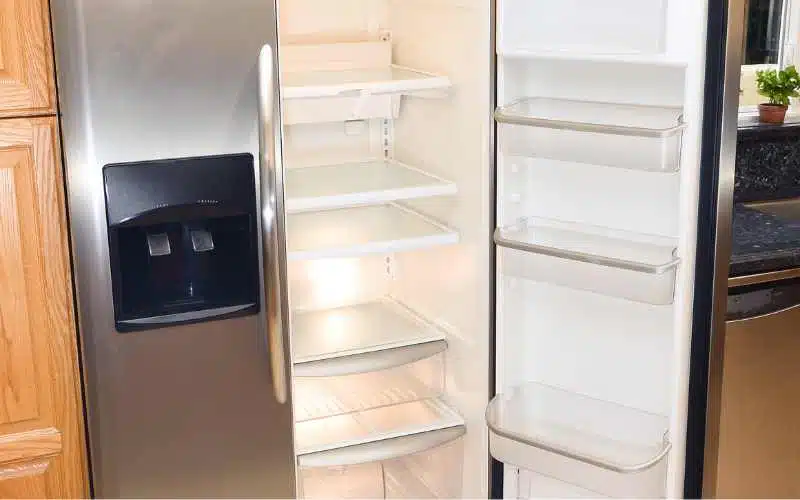Fridges are like silent heroes in our kitchens, keeping our food fresh and safe. But what’s their secret? It’s a gas called Freon.
You might not see it, but this gas plays a huge role in chilling your favorite snacks and drinks.
In this article, we’ll explore If all fridges have Freon and how it works to keep our ice cream frozen and our veggies crisp. Get ready to learn about the cool science behind your fridge!
Key Insights: The Role of Freon in Refrigerators
- Presence of Freon in Old Refrigerators: Freon, a key refrigerant, is found primarily in refrigerators manufactured before 2010. Its longevity means it can last many years without replacement.
- Environmental Impact: Freon, part of the chlorofluorocarbons (CFCs) family, has been identified as harmful to the ozone layer, leading to its phase-out in newer models.
- Freon Phase-Out Timeline:
- 1992: EPA begins regulations to phase out Freon.
- 2010: End of Freon-based refrigerator production.
- 2020: Ban on importing and exporting Freon.

Do Old Refrigerators Have Freon In Them?
Old refrigerators often contain Freon. This substance was key in making your fridge cold. Freon was effective but it stayed in older models for a reason.
Here’s why you might find Freon in an older fridge:
- Longevity: Freon doesn’t wear out if your fridge runs properly. It can last for many years without needing to be replaced.
- Environmental Concern: Researchers found that Freon harms the ozone layer. This is a shield high above you that protects the Earth from sun damage.
Because of those concerns, companies stopped using Freon. Now they use safer alternatives that don’t hurt the ozone layer. So, if you have an old fridge, it might have Freon, but new ones won’t.
| Refrigerator Age | Likely Refrigerant |
|---|---|
| Old | Freon |
| New | Eco-friendly alternatives |
Remember, Freon is only found in old refrigerators and not in the new models you see today.
When Did They Stop Using Freon in Refrigerators?
Your fridge from before 2010 might have Freon, a refrigerant once common in appliances.
In 1992, the EPA identified Freon as harmful to the environment. New fridges made after 2010 no longer use Freon.
Timeline of Freon Phase-Out:
- 1992: EPA regulations initiate Freon phase-out.
- 2010: Production of Freon-based refrigerators stops.
- 2020: Importing and exporting of Freon banned.
If you have an older fridge, it likely runs on R-12 refrigerant. Newer models use safer alternatives. Post-2010 fridges are both Freon-free and more eco-friendly.
How Do I Know If My Refrigerator Has Freon?
To determine if your refrigerator uses Freon, first check its manufacturing date.
Refrigerators made in the early 90s typically contain Freon. Look for a sticker on the fridge’s back or compressor that might indicate this information.
Carry out these simple tests to confirm Freon’s presence:
- Temperature Check: If the refrigerator cools items effectively, it’s likely Freon is present.
- Listen: Turn off and unplug the fridge, then set the temperature control to off. Place your ear close; a hissing sound suggests Freon.
Freon Leak Indicators:
- Condenser Temperature: After the refrigerator runs for a while, touch the condenser. It should feel hot, indicating an active Freon cycle.
- Performance Issues: Struggling to cool or uneven temperatures can signal a possible freon leak.
Remember, only certified professionals should handle Freon due to its potential environmental impact.
If you suspect your fridge has a Freon leak or needs a refill, contact a technician for assistance.
What Happens When Freon Leaks From Refrigerator?
When your refrigerator has a Freon leak, it impacts more than just the appliance’s efficiency.
Freon is part of a family of chemicals known as chlorofluorocarbons (CFCs), which can be harmful if released into the air.
For Your Refrigerator
- Food Safety: You might find your food and drinks are not as cold as they should be. The main job of the fridge, to keep things cold, is compromised.
- Motor Strain: The motor works harder to cool the interior and may wear out faster. This can lead to frequent repairs or a complete breakdown.
Your Electricity Bill
- Increased Usage: More energy is required as the fridge struggles to maintain the right temperature.
- Higher Costs: This extra work leads to a spike in your electricity bill.
Health and Safety
- Musty Smell: A strange odor indicates a possible leak, particularly in enclosed spaces where the smell cannot dissipate.
- Toxicity: Freon gas is more concentrated closer to the floor, putting pets and children at a higher risk if they breathe it in.
Environmental Concerns
- Atmospheric Pollution: Freon is a persistent environmental pollutant.
- Ozone Layer Damage: It contributes to the depletion of the ozone layer in the upper atmosphere.
Remember to address any signs of a leak promptly to protect your health, your wallet, and the environment. If you suspect a leak, it’s always safest to contact a professional for help.
What is the Most Common Refrigerant Used in Refrigerators?
1. Freon And CFCs (Chlorofluorocarbons)
In the past, your refrigerator probably used something called Freon. Freon is part of the CFCs, which stands for Chlorofluorocarbons.
This gas was not kind to our ozone layer. It helped your food stay cold but at a great cost to our planet.
2. HCFCs (Hydrochlorofluorocarbon)
HCFCs are the next type of gases that followed CFCs as refrigerants. They were a little friendlier to the environment.
However, they are still harmful and the government has plans to stop their use by 2030.
HCFCs, which include R-22, have a lower potential to damage the ozone compared to CFCs.
3. HFCs (Hydrofluorocarbon)
Nowadays, your fridge most likely uses HFCs. These gases, such as R-134a, are much better for the earth.
They don’t harm the ozone layer because they don’t have chlorine in them. This makes HFCs a good choice for keeping your foods cold without warming the planet.
4. HCs (Hydrocarbons)
The newest refrigerants on the block are HCs or Hydrocarbons. These are natural and don’t mess with the ozone layer at all.
They are also kind to your wallet because they work efficiently. That’s a win for both the environment and your energy bills.
Hydrocarbons like isobutane are being used in many modern refrigerators.





